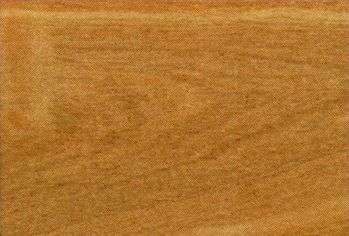
Brown alder (Ackama paniculata)
Family: Cunoniaceae
Common names: Brown alder, Corkwood, Pencil cedar, Rose alder, Rose-leaf marara, Sugar bark
Distributed in: Australia, United States (North America, Oceania and S.E. Asia)
Common uses: Boxes and crates, Brush backs & handles, Cabinetmaking, Flooring, Flooring: industrial heavy traffic, Furniture, Heavy construction, Joinery, Light construction, Millwork, Paneling, Plywood, Plywood: veneer (marine), Turnery, Veneer: decorative
Tree size: Trunk diameter is 100-150 cm
Colors: the heart isRed, Reddish brownand the sapwoodWhite, Yellow.The grain isWeak figure, the textureMedium
Natural durability: Susceptible to attack from powder post (Lyctid & Bostrychid) beetles, Susceptible to insect attack
Kiln Schedules: Dry at a slow speed
Drying Defects: No surface checking, Slight surface checking
Tree Identification: Bole/stem form is buttressed
Comments: General finishing qualities are rated as good
Cutting Resistance: Cutting Resistance with dry wood is easy
Gluing: Fairly Easy to Very Easy
Nailing: Holds nails well, Very Good to Excellent
Planing: Easy to plane
Resistance to Impregnation: Sapwood is permeable
Response to hand tools: Moderate working qualities
Routing recessing: Routing is difficult
Veneering qualities: Veneers easily, Veneers moderately easy
Screwing: Fair to Good Results, Very Good to Excellent Results; Turning: Easy to turn
Staining: Finish is generally satisfactory
;
- Numerical data Metric
- Numerical data English
- Strength properties
- References
 |
 |
 |
 |
| Item |
Green |
Dry |
Metric |
| Specific Gravity |
|
|
|
| Density |
|
544 |
kg/m3 |
| Bending Strength |
429 |
674 |
kg/cm2 |
| Crushing Strength |
275 |
449 |
kg/cm2 |
| Hardness |
|
|
kg |
| Impact Strength |
|
|
cm |
| Shearing Strength |
|
|
kg/cm2 |
| Stiffness |
95 |
110 |
1000 kg/cm2 |
| Tangential Shrinkage |
|
|
% |
| Radial Shrinkage |
5 |
|
% |
| Weight |
528 |
416 |
kg/m3 |
| Maximum Load |
|
|
cm-kg/cm3 |
| Toughness |
|
|
cm-kg |
| Static Bending |
|
|
kg/cm2 |
|
 |  |  |  | | Item | Green | Dry | English | | Bending Strength | 6111 | 9589 | psi | | Density | | 34 | lbs/ft3 | | Maximum Crushing Strength | 3916 | 6397 | psi | | Stiffness | 1358 | 1568 | 1000 psi | | Weight | 33 | 26 | lbs/ft3 | | Radial Shrinkage | 5 | | % | | Tangential Shrinkage | 9 | | % | |
Density (dry weight) = 31-37 lbs/cu. ft.
Modulus of Elasticity (stiffness) = low
Max. crushing strength = medium
Density (dry weight) = 38-45 lbs/cu. ft.
Bending strength (MOR) = low
Shrinkage, Tangential = large
Shrinkage, Tangential = fairly large
Shrinkage, Radial = moderate
Shrinkage, Radial = large
Shrinkage, Radial = fairly large
Anderson, R.H.,1947,The Trees of New South Wales,New South Wales Department of AgricultureAustralia - N.S.W. Forestry Commission,1968,Working Properties of some Native and Imported Timbers,Forestry Commission of New South Wales, Technical Publication No.8Australia - N.S.W. Forestry Commission,1988,Furniture Timbers of New South Wales,Forest Commission, N.S.W., Aust. Tech. Publication No.1Boas, I.H.,1947,The Commercial Timbers of Australia - Their Properties and Uses,Council for Scientific and Industrial Research, MelbourneBootle, K.R.,1971,The Commercial Timbers of New South Wales and their use,Angus & Robertson (publishers) PTY LtdForestry Commission of New South Wales,1987,Timbers used in New South Wales for Domestic Buildings,Forestry Commission of New South Wales, Technical Publication No.6Francis, W.D.,1951,Australian Rain-forest Trees,Commonwealth of Australia - Forestry and Timber BureauI.U.F.R.O.,1973,Veneer Species of the World,Assembled at F.P.L. Madison on behalf of I.U.F.R.O. Working Party on,Slicing and Veneer CuttingThe Australian Timber Journal & Building Products, Merchandiser,1969,Timber Durability and Preservation,Supplement to Australian Timber Journal 35(4) Tech. Timb. Guide No.8
|








